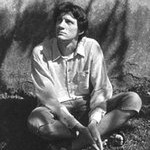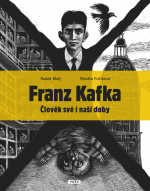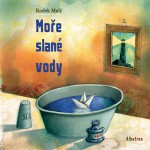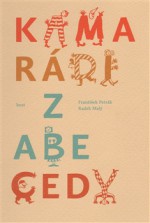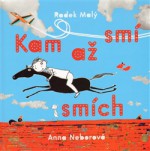Poet, specialist in Czech Studies, translator, pioneer in live poetry and poetry for children. He has been awarded several literary prizes including two Magnesia Literas. He was born in Olomouc on 24 July 1977.
Radek Malý
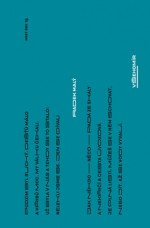
Allpeace
Všehomír
| Title | Publisher | Year | Selected published translations | Awards |
|---|---|---|---|---|
| Poems On Punched Cards (Básně na děrné štítky) | Odeon | 2022 | ||
| Franz Kafka - A Man of His Time and Our Own (Franz Kafka - Člověk své a naší doby) | Práh | 2017 | ES | DE | EN | |
| Allpeace (Všehomír) | Host | 2015 | ||
| The Saltwater Sea (Moře slané vody) | Albatros | 2014 | ||
| All Kinds of Small Talk for Boys and Girls (Všelijaké řečičky pro kluky a holčičky) | Triton | 2013 | ||
| Home in Language (Domovem v jazyce: České čtení Paula Celana) | Periplum | 2012 | ||
| Friends from the Alphabet (Kamarádi z abecedy) | Host | 2012 | ||
| Photophobes (Světloplaší) | Host | 2012 | ||
| Poetic Vocabulary for Children in Examples (Poetický slovníček dětem v příkladech) | Meander | 2012 | ||
| The Postman Wind: (what it brought and what it whispered to me) (Listonoš vítr) | Albatros | 2011 |
2012 Golden Ribbon Award – Literary section: Literature for children 2012 Magnesia Litera – For children and youth |
|
| The Feeling of the Night Train (Pocit nočního vlaku) | Radioservis | 2009 | ||
| Where Laughter Can Go (Kam až smí smích) | Meander | 2009 | ||
| Small Darkness (Malá tma) | Host | 2008 | ||
| Francis of the Chestnut, Agnes of the Sunflowers (František z kaštanu, Anežka ze slunečnic) | Meander | 2006 | ||
| The Saving Rift (Spásná trhlina) | Votobia | 2006 | ||
| Wind, Well-Travelled Verse (Větrní) | Petrov | 2005 |
2006 Magnesia Litera – Poetry |
|
| Primer, co - author with Hana Mikulenková (Slabikář (s H. Mikulenkovou a M. Formanem)) | Prodos | 2004 | ||
| Crow Songs (Vraní zpěvy) | Petrov | 2002 |
2003 Jiří Orten Award |
|
| Lunovis (Lunovis) | BB Art | 2001 |

Allpeace
Všehomír
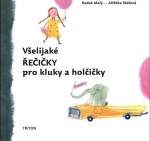
All Kinds of Small Talk for Boys and Girls
Všelijaké řečičky pro kluky a holčičky
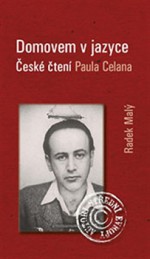
Home in Language
Domovem v jazyce: České čtení Paula Celana
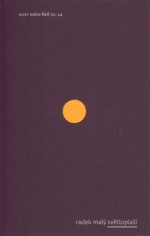
Photophobes
Světloplaší
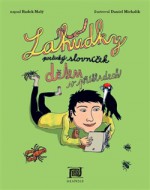
Poetic Vocabulary for Children in Examples
Poetický slovníček dětem v příkladech
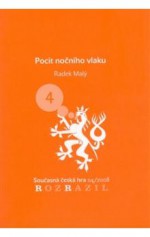
The Feeling of the Night Train
Pocit nočního vlaku
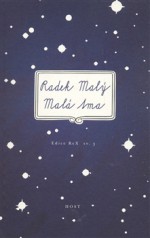
Small Darkness
Malá tma
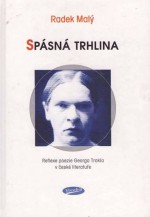
The Saving Rift
Spásná trhlina
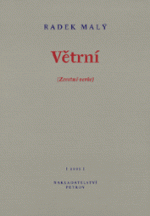
Wind, Well-Travelled Verse
Větrní
Slabikář (s H. Mikulenkovou a M. Formanem)
Radek Malý
Primer, co - author with Hana Mikulenková
Slabikář (s H. Mikulenkovou a M. Formanem)

Crow Songs
Vraní zpěvy
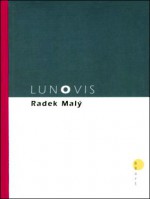
Lunovis
Lunovis
| Award | Year | Country |
|---|---|---|
| Golden Ribbon Award – Literary section: Literature for children | 2012 | Česká republika |
| Magnesia Litera – For children and youth | 2012 | Česká republika |
| Magnesia Litera – Poetry | 2006 | Česká republika |
| Jiří Orten Award | 2003 | Česká republika |
Praise
Photophobes is woven from three threads: threads of light and dark, threads of words and silence and finally a web of gentle lyricism and rough epics. To the (fading) light, which is a central line in the collection with all its symbolic connotations, there is added a scale ranging from speech to silence and from belief to disbelief.
—Olga Stehlíková
iLiteratura
He made his literary debut in 2001 with the collection Lunovis (BB-Art), which was nominated for the Magensia Litera literary prize in the category of discovery of the year. Here there was already evidence of a refined talent, capable of giving rhythm to linguistically imaginative verse. However, the author doesn’t hold on to these for embellishment, but for carefully considered meaning. “Autumn like Doctor Mengle, separating the wheat from the chaff / Only pure souls shall pass.”
A year later Petrov publishers brought out Malý’s Vraní zpěvy (Crow Songs), which won the Jiří Orten Award. “My Vraní zpěvy depicts an intense two-year period: studying in eastern Germany, returning to the Olomouc periphery, a bloody autumn, a sharp winter and a bitter spring. Thankfully that’s behind me and the time has come to look back,” said the author about the collection. And the critic Radim Kopáč added, “Even in the second book by the Olomouc-born poet, Radek Malý, his tightly bound verse is a constant, with its deliberately overstrained expression, which the author lightens in places with Morgensternian farce and decadent stylization. The writer turns towards the night, to man’s unconscious, to dreaming and darkness; as we emerged from the darkness so to the darkness we shall return.”
Another collection and another prize – in 2005 Radek Malý won the Magnesia Litera for poetry for Větrní (Wind, Petrov). Its subtitle is Zcestné verše (Well-Travelled Verse) and contains, for example: “I am scared like a dog and fireworks / under the table curled up in the dark / I am scared I am scared of being scared / A year like a splinter in the hand – what good is it all?” However, Malý is suddenly capable of being playful and somewhat more cheerful, the dark and melancholic autumn twilights are sometimes replaced by quite humorous scenes: “The Chinese are doing Tai-chi on the lawn / and the day is a letter, the Sun seals / and goes and looks like a tomato / or – who knows – perhaps tomatoes.” The subtitle of Well-Travelled Verse, then (as a linguistic error which starts off the game with the reader even before the book is opened), refers to texts which emerged while travelling, wandering, away from home, indeed the first part of the collection is called Jakýpak doma (What Kind of Home). According to the author, Větrní was therapy following Vraní zpěvy, which is what the critics also say: “Větrní is a far more conciliatory and simple collection of explicit tension,” wrote Radim Kopáč. Here too the author notes the time and place when the poem was written, which shows in detail Větrní’s range of travel between Prague, Třebíč, Boskovice, Italy, France, Austria and Romania.
In Malá tma (Small Darkness, 2008, Host) he continues on a journey lit by the moon as well as with his linguistic games: “The worn-out wee darkness winks wearily / Bridges / argue about who will sleep under them.” In his review Ondřej Hanus noted that it was a “pocket apocalypse”. The Small Darkness summarizes the melancholy in life which people know little of, where it is going, even of the world which continues to rotate without clear meaning or faith in the future. The poet is ironic, he sighs and drinks, as though the wine could make him forget, and for a while the world began to turn more slowly. For Malý, a moment of irate solitude or helpless rage is not just a personal feeling, but a social commentary: “I drove my Germans out of the small Sudetenland / Then I wanted to drink to it. They closed down my shop. / I hung up a flag. Now it’ll be OK / I drove out my Germans. Shit, I’ve got it good!”
In 2012 Radek Malý published his latest collection for adults called Světloplaší (Photophobes, Host). The reaction seemed to suggest it was mainly about quietening, which of course might be an impression from the initial reading, though this has been undermined by critics such as Olga Stehlíková from iLiteratura.cz: “I hear more shouting than quiet, sometimes pretence, which is characteristic of Malý – and actually nice.” The (self)irony has remained, including the perfectly targeted short commentaries: “To be or kurwa (fucking) not to be.”
Malý’s works for children are also very important. These began with Slabikář (Primer) in 2004, followed by the co-written poems in Šmalcova abeceda (Šmalec’s Alphabet Baobab, 2005) and František z kaštanu, Anežka ze slunečnic (Francis of the Chestnut, Agnes of the Sunflower) – a book about autumn with illustrations by Galina Miklínová, which was published in 2006 by Meander and was nominated for the Josef Škvorecký Award and the IBBY Golden Ribbon. Three years later Meander also published Malý’s collection Kam až smí smích (Where Laughter Can Go) and Poetický slovníček dětem v příkladech (Poetic Vocabulary for Children in Examples, 2012), which teaches children the theory of poetry. Kamarádi z abecedy (Friends from the Alphabet, Host, 2013) is written in a similar vein. The collections Listonoš vítr (The Postman Wind, Albatros, 2011) and Moře slané vody (The Saltwater Sea) were illustrated by Pavel Čech, which complemented the poetic and playfulness of Malý’s verse. Příhody matky přírody (Tales from Mother Nature, Meander, 2014) are prose texts – seven answers to questions about nature.
